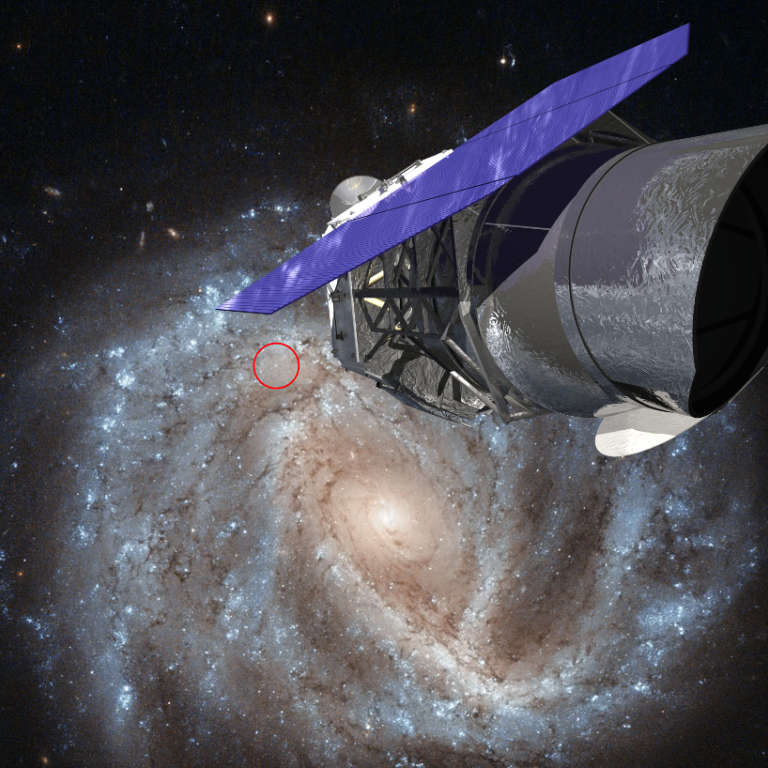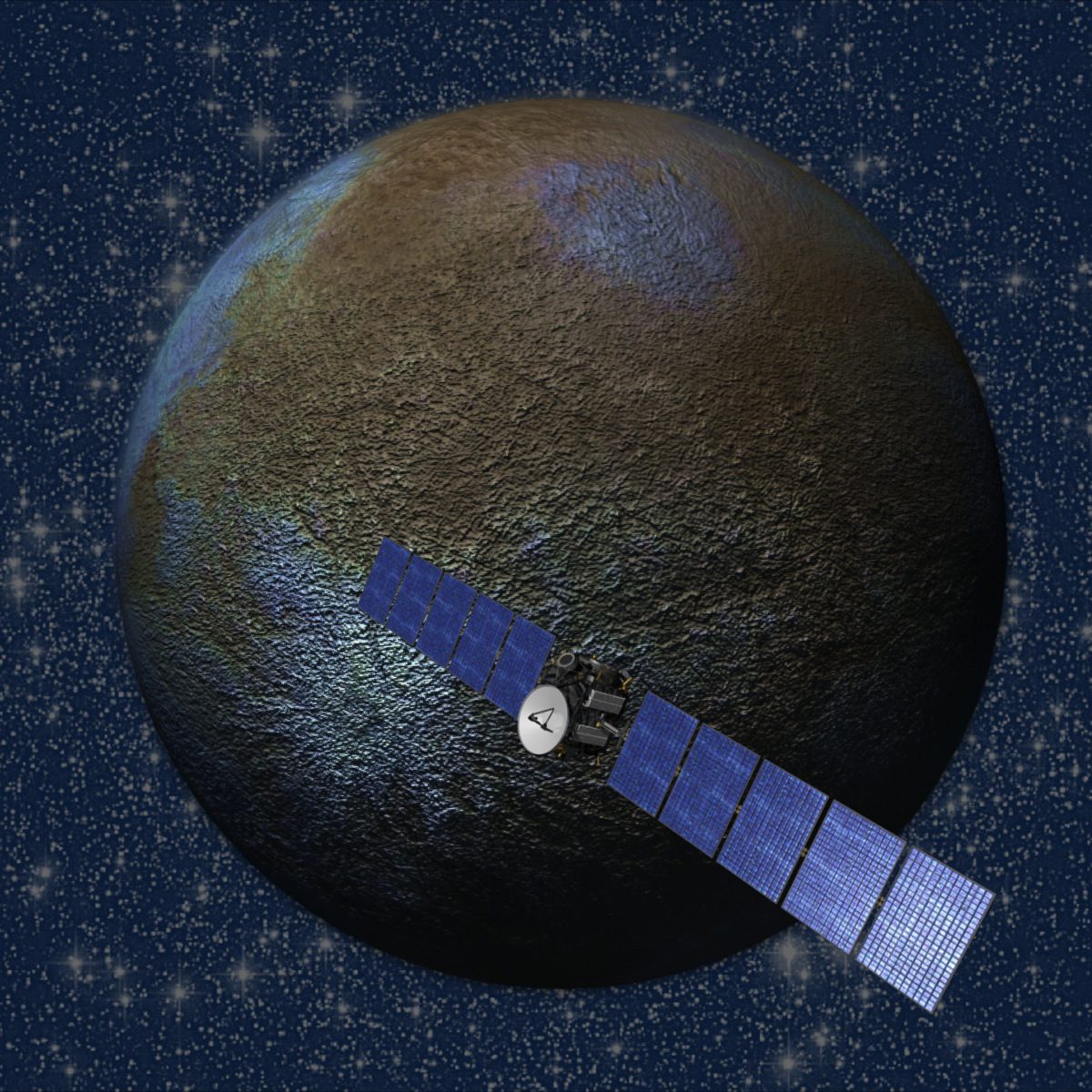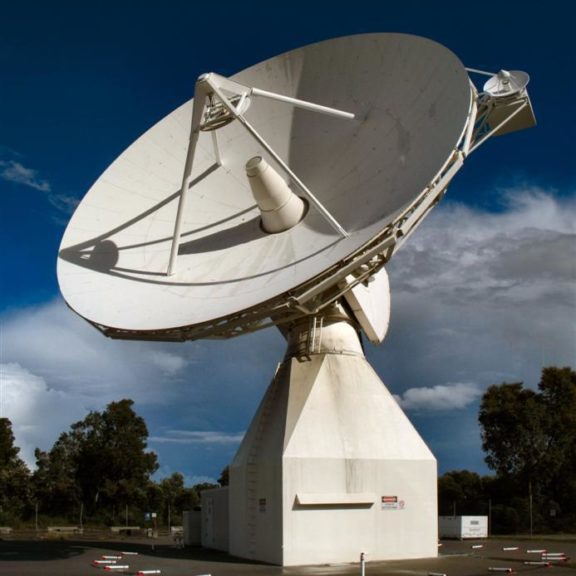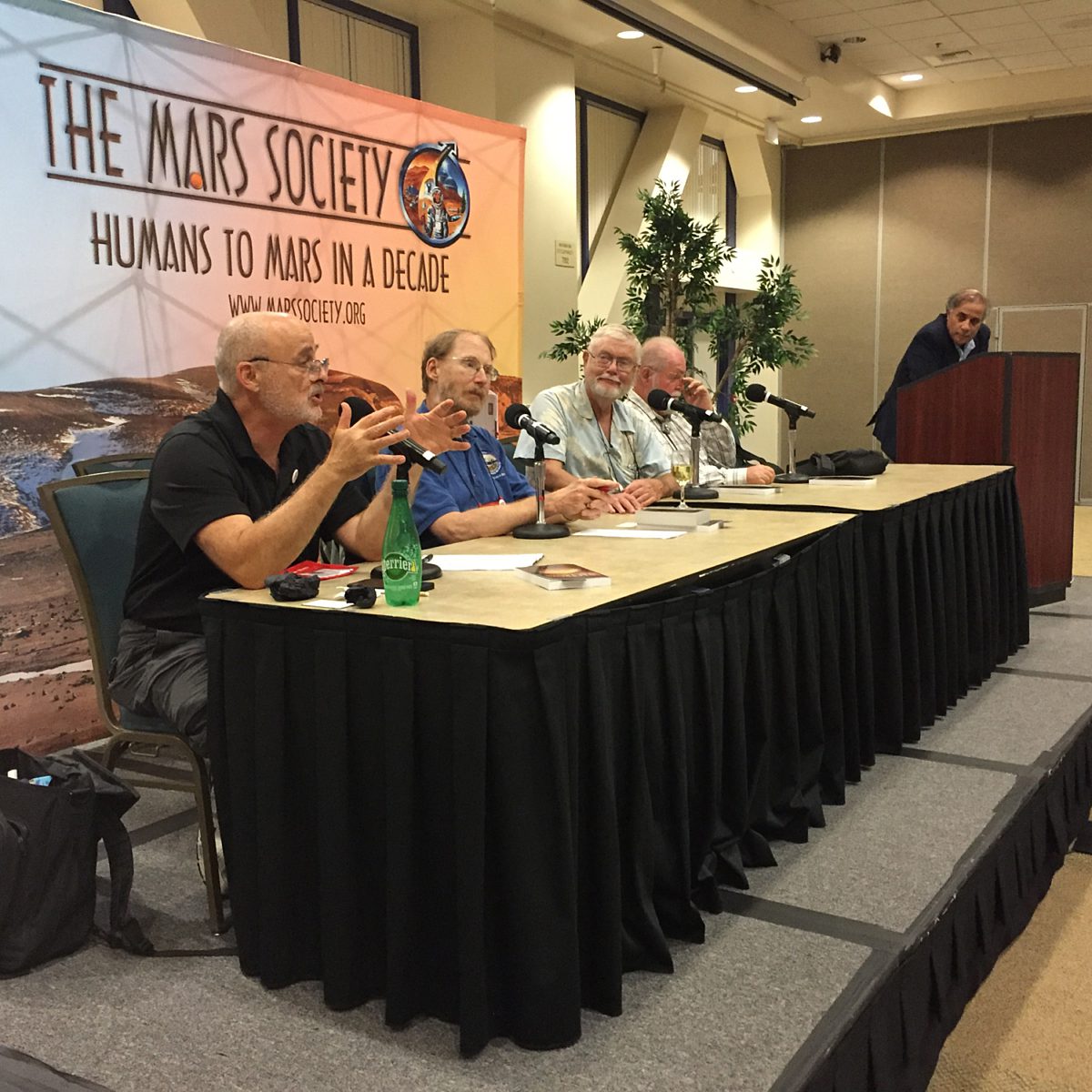Since 2002, Planetary Radio has visited with a scientist, engineer, project manager, advocate, or writer who provides a unique perspective on the quest for knowledge about our Solar System and beyond. The full show archive is available for free.
Search Planetary Radio
No mission to Mars has done what InSight will do. The lander’s spectacularly sensitive instruments will use the Red Planet’s heat and marsquakes to reveal its deep interior while also revealing secrets of other rocky worlds like our own Earth.
Lori Garver, former Deputy Administrator of NASA, talks with Casey about what the Deputy and Administrator jobs are like day-to-day, how decisions actually get made at the top, and why the current lack of confirmed leadership hurts the space agency.
The multi-award winning science fiction author, futurist and speaker returns to Planetary Radio for a wide-ranging conversation about robots and humans in space, empathetic artificial intelligences, how we can survive the Singularity and much more.
Society members from 21 states descended on the U.S. capitol for a
As promised, Casey Dreier and Jason Callahan are back with a special review of the just-released FY 2019 President’s Budget Request (PBR) for NASA. It contains good news, bad news and odd news. What is likely to stand? What will Congress ignore, going its own way? NASA’s new lunar ambitions, Mars Sample Return, WFIRST and more hang in the balance. Let the debate begin.
Republican Randy Hultgren and Democrat Derek Kilmer celebrate formation of the new bipartisan, bicameral caucus of US representatives and senators. They have united behind exploration of our and other solar systems. Bill Nye shares his eye and ear witness account of the SpaceX Falcon Heavy launch and landing. The new What’s Up space trivia contest takes its inspiration from the Tesla Roadster now on its way to Mars.
Planetary Society CEO Bill Nye attended the State of the Union address on January 30th, he also spent the day meeting with sixteen different members of Congress to promote science on Capitol Hill. In this special abbreviated show, Casey Dreier and Mat Kaplan welcome their colleague Matt Renninger, who joined Bill on Capitol Hill, to discuss the goals of The Planetary Society and the reasons why it was important for Bill to attend.
Join Mat Kaplan on a visit to Naval Base San Diego and the USS Anchorage, the amphibious ship that has just completed a round of Orion spacecraft recovery testing and practice.
Mat Kaplan talks with participants in the National Space Society’s recent Space Settlement Summit about human destiny in space.
It’s the space policy guys’ turn to look back at a year that saw great achievements in space. Were they matched by events in Washington DC?
Mars scientists dubbed them recurring slope lineae or RSLs. They sure looked like evidence of liquid water flowing down hillsides and ridges on the Red Planet. New research led by USGS Planetary Geologist Colin Dundas says otherwise.
On December 11th President Donald Trump signed a memorandum that firmly points the US space effort toward the Moon, but without providing many details. Planetary Society Director of Space Policy Casey Dreier fills in some of the gaps left by this executive directive.
Elon Musk. Jeff Bezos. Richard Branson. These are the names we tend to associate with the current era of private space exploration. But what about John Quincy Adams, James Lick, or Charles Yerkes? Space economist and historian Dr. Alex MacDonald joins us to discuss his book,
Canada has a new Space Advisory Board, and The Planetary Society’s Kate Howells is a member.
Congressman Adam Schiff’s California district includes the Jet Propulsion Laboratory. He is as enthusiastic a fan of the final frontier as you are likely to find under the capitol dome in Washington D.C.
The likely next Administrator of NASA, Jim Bridenstine, appeared before a somewhat skeptical Senate committee to defend his nomination. Casey and Jason recap the hearing and assess Congressman Bridenstine’s chance of moving forward.
Dawn Mission Director and Chief Engineer Marc Rayman helps us salute the ion-engine powered spacecraft that first orbited asteroid Vesta in the main asteroid belt and then moved to dwarf planet Ceres, revealing two fascinating worlds.
Fifteen years before Sputnik, on a bright 1942 afternoon in northern Germany, a thundering machine of metal and fire pierced the sky, ultimately touching the edge of space for the first time in history. It opened a new era of opportunity and terror with rocket technology. Dr. Michael Neufeld joins us discuss the significance of this test and how it happened.
The Australian government announced that it would create a national space agency at the 68th annual International Astronautical Congress in Adelaide. We’ll talk with IAC 2017 CEO Brett Biddington about what this means for his country.
Robert Zubrin of the Mars Society talks with Gregory Benford, David Brin, Geoffrey Landis and Larry Niven about terraforming Mars, the origin of life, the drive to explore and more.


 Explore Worlds
Explore Worlds Find Life
Find Life Defend Earth
Defend Earth



















